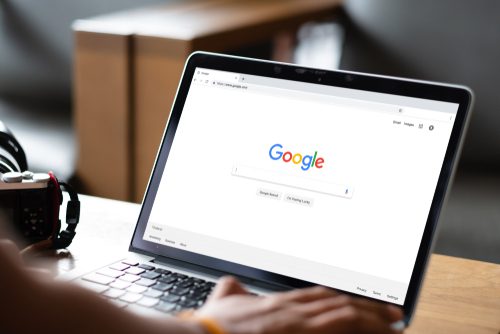
Google Says Penguin 4.0 CAN Demote Websites
John Mueller said something interesting during Google’s SEO office-hours on October 29, 2021. During the video, John Mueller was asked about the relevancy of the Penguin algorithm today, specifically whether it is still used to penalise spam links or whether Google simply ignores spammy links.
Here is John’s full response:
I’d say it’s a mix of both.
So for the most part when we can recognize that something is problematic and any kind of a spammy link and we will try to ignore it. If our systems recognize that they can’t isolate and ignore these links across a website. If we see a very strong pattern there then it can happen that our algorithms say well we we really have kind of lost trust with this website and at the moment based on the bigger picture on the web, we kind of need to be more on almost a conservative side when it comes to to understanding this website’s content and ranking it in the search results. And then you can see a kind of a drop in the visibility there.
But for the most part the web is pretty messy and we recognize that we have to ignore a lot of the links out there. So for the most part I think that’s fine. Usually you would only see this kind of a drop if it’s really a strong and clear pattern that’s associated with the website.”
So yes, the Penguin 4.0 algorithm can still demote a website’s search visibility if it thinks you are trying to manipulate PageRank with backlinks.
Why is this important?
Ever since the release of Penguin 4.0 back in 2016, Google has constantly repeated that the algorithm does not demote websites. If it comes across a spammy or manipulative backlink, it will simply ignore the link and it will not impact the website’s ranking – for better or worse. The idea behind nullifying a link rather than penalising it is to reduce two parts of SEO which were more prevalent back in the day:
- Negative SEO: this is mostly about building a lot of bad links to someone else’s website in the hope that Google will penalise the website. By ignoring these links, negative SEO will have no impact.
- Linkbuilding for SEO: this is all about creating links with the main goal of increasing your PageRank and therefore improving your website rankings. By ignoring links that are built just for this purpose, it allows Google to greatly reward websites that are more natural rather than websites that are clearly trying to game the algorithms.
However, this latest comment by John Mueller goes against the statements from Google we’ve seen in the last 5 years. The Penguin algorithm does in fact still have the option for penalising a website for unnatural linkbuilding.
What does this mean for linkbuilding?
As far as linkbuilding goes, this should serve as a warning. In terms of the trashy, blatant spam backlinks we come across like web 2.0s, blog comments and forum posts etc – these will most likely be ignored. The key part of John Mueller’s statement for linkbuilders is this sentence:
If our systems recognize that they can’t isolate and ignore these links across a website […] then it can happen that our algorithms say well we we really have kind of lost trust with this website”
This statement is all about how Penguin can target the high-quality linkbuilding methods we all know, such as guest posts and press releases. Now there’s nothing wrong with contributing content to another website, or publishing press releases about your company. However, Google will take issue if you do these things for the purpose of manipulating your PageRank.
The idea behind linkbuilding with guest posts and press releases is to build links that look natural. A natural backlink will be weighted more and will be more likely to count towards your PageRank, which in-turn will improve your rankings. But when it comes to linkbuilding, you are undoubtedly going to leave a trail of patterns which Google can pick up on. Perhaps you’re using similar anchor texts too much, maybe you are including the backlink in the first paragraph on all of your guest posts etc. In fact in the same Office Hours session, John Mueller goes on to say that the algorithms have a variety of signals to detect guest posts.
Now, when Google picks up on these patterns and identifies that a website is actively trying to manipulate its PageRank with these “high-quality links”, it can actually become confused. It looks at the other “high-quality links” the website has and starts to question itself – “are these backlinks genuine like I originally thought or are they guest posts as well?” This is where your backlink profile can become jeopardised – all those backlinks that Google previously thought were natural are now thrown into doubt and are being discounted. We’re not talking about the forum posts you made in 2008, we’re talking about that time The Independent quoted your expert advice and included a link to your website without you even asking.
What’s the advice for linkbuilders?
The takeaways from this statement is simple and something SEOs should be following anyway: do not overdo it. The fact is, any form of linkbuilding for SEO is against Google’s Webmaster Guidelines. If the algorithms detect you are actively trying to manipulate PageRank with backlinks, Penguin still has the option to demote your website – no matter how good you think the referring website is.




